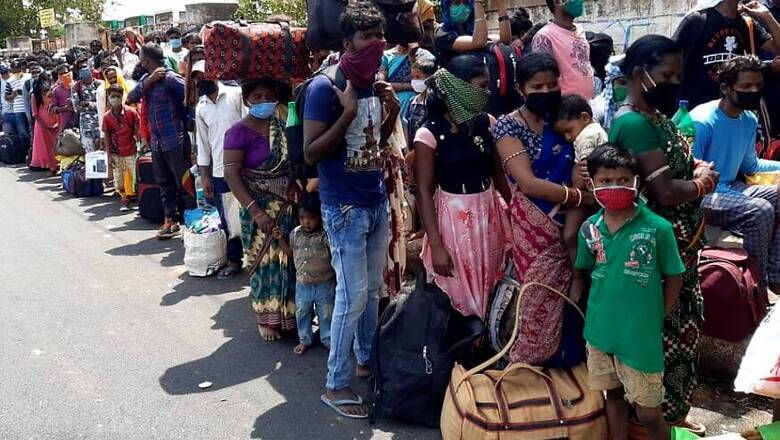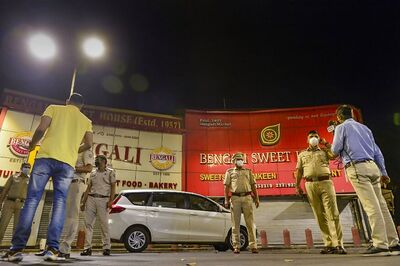
views
Bengaluru: A reputed business family in Bengaluru is worried these days. Not because it doesn’t have money or the business is not in a good shape. The source of their problem is an acute shortage of construction labourers, as a result of which two of their huge projects have come to a sudden halt.
A few kilometers from the location these two projects, a contractor who works for the Bengaluru Metro is also worried. Many of his workers have gone back home in the last one month and he is finding it impossible to meet the deadlines.
Some contractors who do city civic body the BBMP work are also worried as most of their workers have returned to their home states by special trains. The monsoon is likely to arrive in the next three weeks and most of pre-monsoon maintenance works are pending across Bengaluru.
The COVID-19 lockdown and subsequent reverse migration of poor workers to their respective states is expected to prove double whammy for the economy, which is already heading south for various other reasons.
Though there are no accurate figures of migrant workers in Bengaluru, according to an estimate, at least 10 lakh are employed in housing and infrastructure sector alone. They are into private housing projects to huge public infrastructure building works like metro and highways.
Most of them are from Uttar Pradesh, Bihar, Orissa and West Bengal. In the last two weeks, over 2.5 lakh of them have returned home by 150 special ‘Shramik’ trains. And a few lakhs more have gone home using other modes of transport. Most of their camp sites look deserted and hundreds of ongoing projects have come to a sudden halt.
“Till the Lockdown, we had about 2,000 workers with us. Over 1,000 have returned home in the last three weeks. Remaining workers might also go back. We currently have four commercial buildings under construction. If the same situation continues, we may have to shut down all our projects indefinitely. It will have a huge economic impact on us,” said a well-known builder from the city.
Dozens of other builders expressed similar fears about the future.
Till lockdown was declared, the third Phase of Namma Metro was progressing at a good speed. But thr lockdown applied a sudden brake to the work in April. Although the work has resumed now, the contractors are facing a shortage of labour.
The exodus of migrants has also affected small-time businesses in a big way. Hotels, restaurants, shops, malls, spas, salons, etc. also employ lakhs of them and at least one -third have returned home, leaving the owners high and dry.
“The lockdown destroyed our business in the first two months. We are now open. But half of our workers have returned home. How will we run our business and survive?” asks Shilpa, who runs a salon in the city.
The restaurants which have been shut for the last two months are hoping to reopen soon. But they have also lost much of their workforce. Most of the cleaning job is otherwise performed by the migrants in these restaurants.
Realising that the exodus of migrants would deal a death blow to economic activities, the Karnataka government initially tried to prevent them from going home by stopping the special trains. But after it became a huge issue, the government had to allow the trains to run.
“We can’t stop them. That is not possible. We are hoping that they would return in the next few months,” said a senior minister. Praveen Sood, Karnataka DGP, also expressed a similar sentiment after the flagging off 100th special train on Saturday.
Some Kannada activists are now demanding that the government use local poor Kannadigas to continue the work. But the construction and infrastructure experts say it is not going to be easy as the demand is high and the supply is low.
The exodus has also affected the local economy which was dependant on the spending of migrants. The shops, eateries, etc near the camp sites have lost business and the landlords who have built small hut-like structures to house them have no tenants.
“We don’t expect any improvement during the monsoon season. We are hoping for the situation to improve after Diwali,” said a builder.



















Comments
0 comment